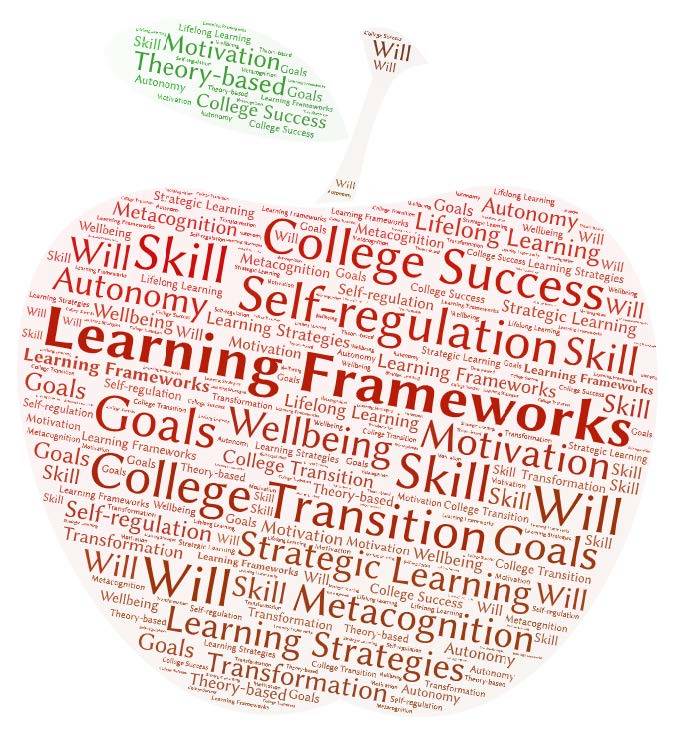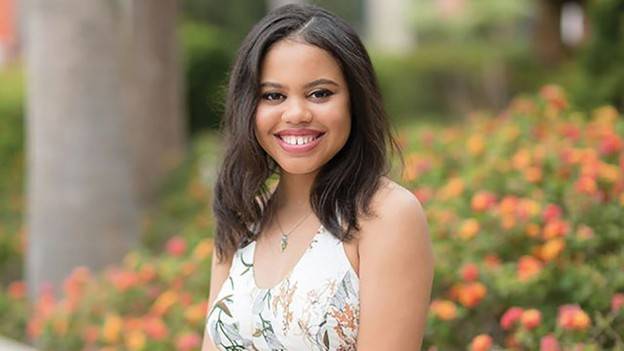*Funded through a grant from the Greater Texas Foundation

REGISTER HERE (by Friday, June 27, 2025): https://txstate.co1.qualtrics.com/jfe/form/SV_3NPBYDZ1qCvsRyC
Symposium date: Friday, July11, 2025
Symposium time: 9:00am to 3:00pm
Location: Zoom link will be sent after registering for the Symposium
Cost: Free
Event description: The purpose of this symposium is to bring together learning frameworks course coordinators and lead faculty to discuss curricula, pedagogies, policies, and research regarding learning frameworks courses across Texas community colleges. Through this Symposium, participants will gain networking opportunities and both scholarly and practical knowledge related to learning frameworks courses. We are inviting each community college in Texas to register up to four learning frameworks course coordinators or lead faculty to participate in the Symposium. If your institution has multiple campuses with different learning frameworks course coordinators, we welcome up to four individuals from each of those campuses as well. Please share this invitation with the appropriate individuals.
Proposal submission (by Friday, June 13, 2025): This year we are again inviting you to submit a proposal to present original research or a promising practice(s) in a 30-minute concurrent session relating to learning frameworks courses. To submit a proposal, fill out the information at the following link, https://txstate.co1.qualtrics.com/jfe/form/SV_aV1NtSsMV9sFHKu
Symposium coordinators: Drs. Taylor Acee, Russ Hodges, and Eric Paulson.

Keynote address: The Power of Community Colleges
Keynote speaker: Haley Taylor Schlitz, Esq.
Biography:
Haley Taylor Schlitz, 22, is the youngest Black person and youngest woman to earn a law degree in U.S. history. At 19, she graduated from the SMU Dedman School of Law and previously, at age 16, became Texas Woman’s University’s youngest honoree with a Bachelor of Science. She dedicated a year to teach US History to 5th graders in Fort Worth, Texas. Now, she is an Assistant Attorney General for the Minnesota Attorney General's Office.
Haley's significant contributions include leading grassroots efforts for the Texas CROWN Act, championed by State Representative Rhetta Bowers, which she witnessed become official law in 2023. As an authoritative voice on Generation Z issues, she’s spoken internationally and written for platforms like TheGrio, Blavity, and Teen Vogue. Beyonce recognized her in "This Is Black History 2020". Currently, she's on the board of the Emerge Young Leaders Cabinet and Greater Twin Cities United Way. Haley has earned accolades such as Brightbeam’s Top 30 Education Influencers in 2021.
Symposium Schedule Friday, July 11, 2025
| Time (CST) | Title | Presenter |
|---|---|---|
| 9:00 - 9:30am | Welcome, Overview of the Symposium, and Icebreaker Exercise | Taylor Acee and Russ Hodges (Texas State University) |
| 9:30 - 10:15am | Learning Frameworks Curricula and Student Success Outcomes | Taylor Acee, Russ Hodges, Eric Paulson, Jim Van Overschelde, Phillip Vaughan, Jonathan Consteen, Lori Wischnewsky, Giovanna Lorenzi Pinto, Gail Sylvester-Conrad, and Zohreh Fathi (Texas State University) |
| 10:15 - 10:30am | Break | |
| 10:30 - 11:00am | 30-minute Concurrent Sessions | Session 1 Experienced Instructors’ Perceptions of Teaching Learning Frameworks Courses Presenting authors: Diane Ramirez, Jonathan Vontsteen, Sanzida Sharmeen, Semilore Adelugba, Emma Soleimani, and Russ Hodges (Texas State University) This session will provide historical perspectives of the emergence of how-to-study courses in the United States. Presenters will then reveal findings from a phenomenological qualitative study investigating experienced postsecondary instructors’ perceptions of teaching learning frameworks courses throughout the years in regard to how these courses have evolved in regard to curriculum, instructional methods and student outcomes. Moderator: Dorothy Achiaa (Texas State University) |
| Session 2 Overcoming Institutional Barriers: Promoting the Value of Learning Frameworks Courses Presenting author: Julie Engel (San Antonio College) Learning Frameworks courses have a proven benefit to new students, but they often face significant challenges related to faculty and administration support, which is crucial. At San Antonio College, we face these barriers on a cyclical basis depending on the current leadership and climate. To address these institutional barriers, we have developed an intentional approach to ensuring that the FYE courses are visible, respected, and supported. Join in to explore practical strategies for overcoming institutional barriers through a cycle of advocacy which includes the use of data, engaging faculty, building partnerships, and showcasing successes. Moderator: Stephen Maku (Texas State University) | ||
| 11:00 - 11:15am | Break | |
| 11:15 - 11:45am | 30-minute Concurrent Sessions | Session 3 Integrating Faculty Advising with EDUC 1300 Presenting authors: Heather Syrett, Edgar Granillo, Sharon Goh, and Amber Sarker (Austin Community College) To support student success and retention, the Student Development department and Faculty Advising at Austin Community College launched a pilot program that integrates faculty advising into the EDUC 1300 Student Success course. Faculty advisors are matched with students in 8- and 12-week asynchronous sections and provide personalized support. Advising sessions focus on academic planning, major and career exploration, and connecting students with college resources. The pilot included approximately 739 students across 32 synchronous sections in 2024-2025. This initiative aims to increase student engagement with advising, improve EDUC 1300 completion rates, and boost re-enrollment. Scheduled advising appointments during weeks 3–6 target key decision-making periods, helping students reflect on their progress, clarify their goals, and address challenges. The pilot also serves as a model for scalable, sustainable integration of faculty advising into student development efforts. Moderator: Emma Soleimani (Texas State University) |
| Session 4 From Fidgeting to Flourishing: Embracing Flexible Engagement to Build Belonging in the Classroom Presenting author: Lori Wischnewsky (Texas State University) Higher education is changing and so are our classrooms. Today’s students bring diverse ways of thinking, learning, and engaging, especially as more neurodivergent students, including those with autism, ADHD, and sensory processing differences enroll in college. Inclusive postsecondary education (IPSE) programs for students with intellectual and developmental disabilities are also growing, challenging us to rethink what inclusive teaching really looks like. In this session, I’ll share lessons learned from teaching a Learning Frameworks paired course with Bobcat Rise, an IPSE initiative at Texas State University, alongside insights from recent mixed-methods research with neurodivergent students. We’ll talk about what happens when we stop labeling knitting, drawing, fidgeting, or listening to music as distractions and instead see them as legitimate forms of engagement. You’ll leave with concrete, classroom-ready strategies to create sensory-friendly, flexible environments that support connection, choice, and community for all students. Moderator: Dorothy Achiaa (Texas State University) | ||
| 11:45am - 12:30pm | Lunch Break (feel free to stay in the Zoom room to chat over lunch) | |
| 12:30 - 1:30pm | The Power of Community Colleges | Keynote Speaker: Haley Taylor Schlitz, Esq. Moderator: Diane Ramirez (Texas State University) |
| 1:30 - 1:45pm | Break | |
| 1:45 - 2:15pm | 30-minute Concurrent Sessions | Session 5 Let's Talk Data: Results from a 10-Year Literature Review on First-Year Seminars Presenting author: Christine Harrington (Morgan State University) Discover the findings from a 10-year literature review on first-year seminars. Results are based on 72 articles that met the inclusion and exclusion criteria. Learn about the positive and long-lasting impact the first-year seminar has on student persistence, grades, graduation, beliefs, and behaviors. Study findings on topics such as type of course, number of credits, course topics, and teaching methods will also be shared. Participants will walk away being able to: (1) summarize key research findings on the value of the first-year seminar course, and (2) identify practical ideas about how to put research into action to improve the first-year seminar course. Implications for learning frameworks courses will be discussed. Moderator: Stephen Maku (Texas State University) |
| Session 6 Empower Your Students with Strategies for Mental and Physical Wellbeing Presenting author: Marsha Fralick (Cuyamaca Community College) Since current research shows that about 65% of college students have reported a need for mental health services, colleges are working to enhance these services. The first-year experience course can become part of a college culture of wellness by including wellness topics in the curriculum. An outline of wellness topics will be presented along with practical exercises for the first-year experience classroom. Topics include exploring personal strengths, practicing fundamental cognitive behavioral therapy principles, increasing resilience, managing stress, relaxing, improving exercise and nutrition, getting enough sleep, taking steps to increase happiness, and reflecting on life purpose. Moderator: Emma Soleimani (Texas State University) | ||
| 2:15 - 2:45pm | Open Discussion | All symposium attendees |
| 2:45 - 3:00pm | Closing Remarks | Dr. Taylor Acee, Texas State University |
Note. More details about each session will be added when they become available.
